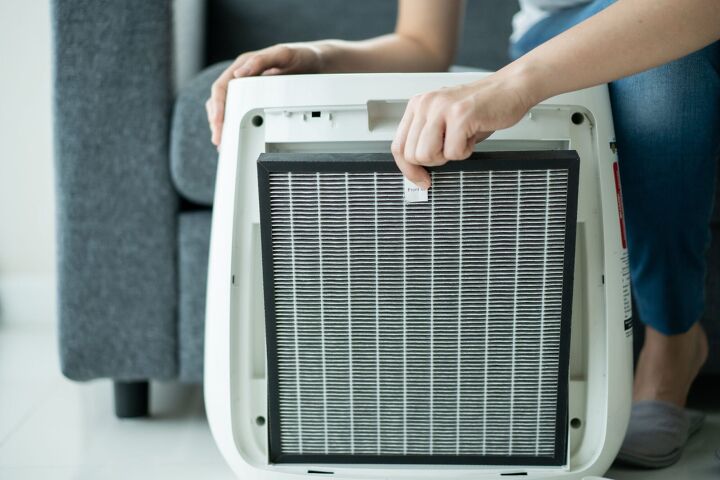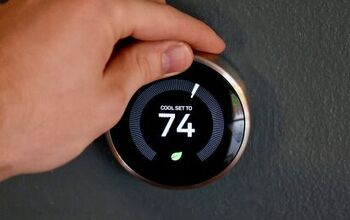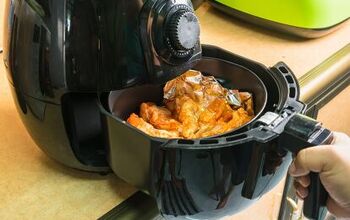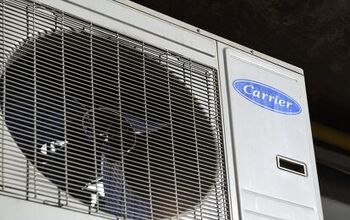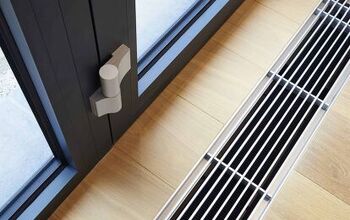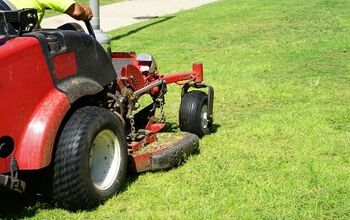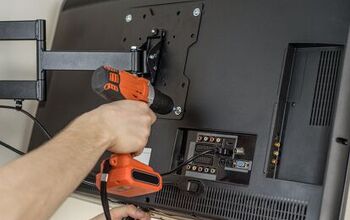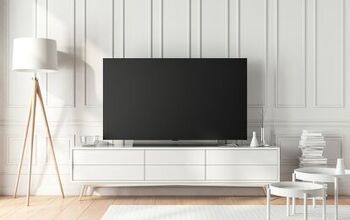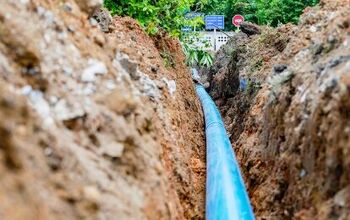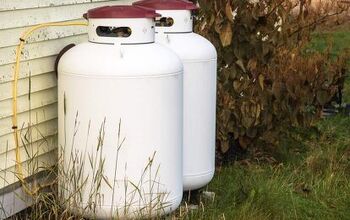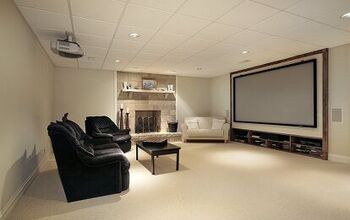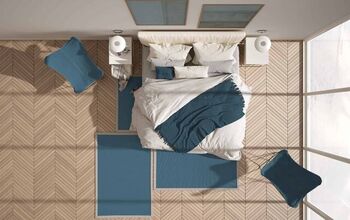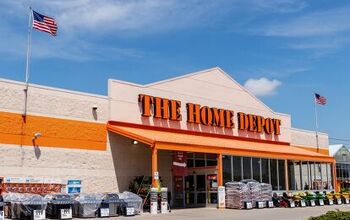Honeywell Vs. GermGuardian Air Purifiers: Which One Is Better?

Honeywell has been a household name for decades upon decades. Over the last 20 years, GermGuardian has made a name for itself as one of the best brands for humidifiers and air purifiers. With such a different background and variety of products between the two, what is better: Honeywell, or GermGuardian?
Honeywell air purifiers can filter more air in spaces up to 465 square feet, and GermGuardian can sanitize up to 153 square feet. The GermGuardian AC4825 costs $85 and uses a charcoal filter and HEPA filter. Honeywell offers the HPA300 for $440, and the similar HPA200 for $200, and both have HEPA filters.
Both brands produce great air purifiers, but which one is better? Let’s explore each brand and see who makes the better air purifier.
Do You Need a Heating and Cooling Contractor?
Get free, zero-commitment quotes from pro contractors near you.

Honeywell
Honeywell has produced a wide range of products since 1885. Their product history includes thermostats, humidifiers, air purifiers, and even helicopter engines. Honeywell’s reach includes aerospace facilities and numerous manufacturing plants.
GermGuardian
GermGuardian’s history starts much sooner in 2002, but they’ve made up for the lost time. Their product line is less varied than Honeywell, and it focuses primarily on humidifiers and air purifiers. GermGuardian products focus on wellness, sanitization, heating, and cooling.
Air Purifiers
Honeywell and GermGuardian produce some of the most efficient and reliable air purifiers. You can run an air purifier all the time and ensure clean breathable air. Air purifiers cycle and clean the air to remove impurities such as dust and smoke.
The difference between an air filter and an air purifier is that air purifiers sanitize particles in the air. Air purifiers both remove and sanitize particles that can cause mold, mildew, and illness. You can improve your respiratory health with air purifiers and mitigate dust throughout the space.
The flagship air purifier for Honeywell is the Honeywell HPA300. GermGuardian boasts the AC4825 which is among the most effective air purifiers on the market. Let’s take a look at how each brand’s offerings differ and see which one is better.
Price
GermGuardian is the more budget-friendly choice when it comes down to brass tacks. The powerful GermGuardian AC4825 costs $85, and that is over four times less than a comparable Honeywell unit. For example, the Honeywell HPA300 costs $440, but it offers a greater value.
There are cheaper Honeywell models, such as the HPA200 that costs $200. Even still, GermGuardian beats Honeywell when it comes to price every time.
Coverage
Coverage is everything when it comes to air purifiers, and you want to cover as much space as possible. For example, the GermGuardian AC4825 cycle and sanitize air within a 167 square foot radius. You can still use the AC4825 to sanitize a larger space than that, but it won’t cover the entire area.
However, Honeywell has GermGuardian beat when it comes to coverage, the HPA300 is ideal for larger spaces. The Honeywell HPA300 has a maximum coverage area of 465 square feet, more than double GermGuardian. This makes Honeywell the better option for large areas or homes with an open concept and minimal walls.
The GermGuardian is perfect for smaller spaces or single rooms that have concerning air quality. You arguably get a better value for coverage with the Honeywell HPA300 because it can be used for large or small spaces. Honeywell makes other units, such as the HFD-120-Q that cover a smaller area of 170 square feet. GermGuardian air purifiers can sanitize 153 square feet worth of air.
Performance
Honeywell and GermGuardian both have a reputation for high-performance products. The GermGuardian AC4825 performs well and cycles dirty air through a pre-filter and charcoal filter. Charcoal filters are known for removing foul odors, and that is where GermGuardian shines.
After the air leaves the pre-filter and charcoal filter, GermGuardian air purifiers run the air through a HEPA filter. GermGaurdian purifiers offer a unique performance because of the extra filtration from the charcoal filter. There is less work for the HEPA filter by the time the dirty air reaches it, and that is why the GermGuardian AC4825 is so effective.
The Honeywell HPA300 runs the air through a pre-filter before it goes to a HEPA filter. Honeywell produces their own HEPA filters, and they are a step above the competition. You can clean 465 square feet of space 5 times each day when you run a Honeywell air purifier all day.
Which Is Better?
GermGuardian is the better budget air purifier, but Honeywell outperforms it. You can save hundreds of dollars with a GermGuardian air purifier at the cost of less coverage. Honeywell can sanitize the air in your room or house more times per day than a GermGuardian, and that makes a big difference.
However, GermGuardian is the better air purifier for you if your main goal is to eliminate odors. The charcoal filter that GermGuardian air purifiers contain offers superior smoke filtration to Honeywell. If you have a large house, the Honeywell HPA300 is the best option for you.
Houses with an open concept are perfect for the HPA300 because of the 465 square foot coverage area. Otherwise, GermGuardian air purifiers are ideal for small areas, apartments, or single rooms and hallways in a large home.
HEPA Filter vs. Charcoal Filter
Honeywell is known for the high-quality HEPA filters that they produce themselves. GermGuardian air purifiers feature HEPA filters as well, but they also feature a charcoal filter. HEPA filters are better for removing allergens and mold, whereas charcoal filters can easily remove odors and smoke.
Don’t let the name fool you; charcoal filters aren’t the same as what you’d find at a family barbeque. Charcoal filters are specifically designed to remove foul odors such as smoke. HEPA filters don’t offer the same odor filtration as charcoal filters, but they do remove harmful allergens.
Air purifiers often contain HEPA filters because they can improve respiratory health. A HEPA filter contains fine wire mesh that can trap particles and render them useless. Regularly change and replace both HEPA and charcoal filters so that they work properly.
Related Questions
Do air purifiers work?
Yes, air purifiers work and can remove harmful allergens and mold. You can mitigate the spread of mold and mildew if you run an air purifier throughout the day. They can also remove odors if you use an air purifier that has a charcoal filter.
Are Honeywell air purifiers ozone-free?
Yes, Honeywell air purifiers are ozone-free, and none of their products contain ozone. Some air purifiers release ozone into the air, and it can be harmful to the upper and lower respiratory tracts. It is common for nearly all air purifiers to produce trace levels of ozone, however, even at harmless levels.
Does GermGuardian kill mold?
GermGuardian air purifiers can kill mold because of the powerful HEPA filter. They also contain UV-C lamps that can break down mold spores, mildew, and germs. GermGuardian air purifiers can also cycle the air so that you don’t breathe in existing mold spores.
Does the GermGuardian emit ozone?
According to GermGuardian, their air purifiers do not emit ozone during operation. You may smell a distinct metallic odor while your GermGuardian air purifier runs, and that is normal.
Do You Need a Heating and Cooling Contractor?
Get free, zero-commitment quotes from pro contractors near you.

Summing It Up
Honeywell air purifiers can cover a larger area than GermGuardian air filters. The GermGuardian AC4825 is better for removing bad odors than the Honeywell HPA300 because GermGuardian uses charcoal filters. However, the Honeywell HPA300 can clean the air 5 times per 24 hours of operation.
GermGuardian air purifiers are cheaper than Honeywell, but Honeywell purifiers can cover more space. The Honeywell HPA300 can cover 465 square feet, and GermGuardian units can cover 153 square feet. GermGuardian stands out because it filters air through a charcoal filter before it goes through a HEPA filter.
Related Articles

Nick Durante is a professional writer with a primary focus on home improvement. When he is not writing about home improvement or taking on projects around the house, he likes to read and create art. He is always looking towards the newest trends in home improvement.
More by Nick Durante



